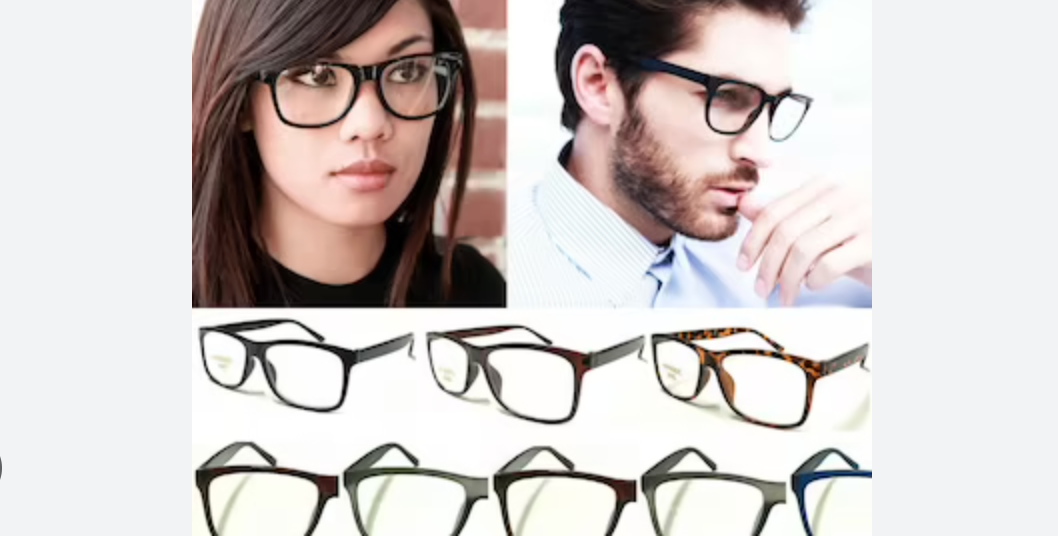Titanium or Cellulose Acetate: Which Material is Best for Your Eyeglasses?
Posted by www.danielwalters.com on 7th Mar 2023

Titanium or Cellulose Acetate: Which Material is Best for Your Eyeglasses?
The world of eyeglasses frames is changing. Gone are the days of thick and bulky plastic frames, replaced by sleek titanium or cellulose acetate designs. With lighter and more durable frames than ever, it can be hard to decide which material is best for you.
With this guide, we'll discuss the differences between titanium and cellulose acetate frames so you can decide about your next pair of glasses. Let's get started.
What is Titanium?
Titanium is a silvery-gray metal used in eyeglass frames since the 1990s. It is lightweight yet very strong and durable – one of the most corrosion-resistant metals available. It is also hypoallergenic, making it a great choice for sensitive skin.
Titanium frames are made from titanium alloy, combining other metals such as aluminum and vanadium to make the metal more malleable. This means that when shaped into eyeglass frames, it is flexible enough to fit comfortably and securely on your face.
Properties of Titanium
Titanium is lightweight, making it an ideal choice for eyeglass frames. It is also very strong and corrosion-resistant – Titanium frames can last up to 10 years or longer with proper care. It is also aesthetically pleasing – perfect for those wanting to make a fashion statement with their glasses.
For those looking for a more subtle look, titanium frames also come in matte or brushed finishes that allow the metal to blend into whatever background it is against.
Benefits of Titanium Eyeglasses
Titanium eyeglasses have a lot of benefits, and they're popular with people who want something lightweight that won't break easily. Titanium is hypoallergenic, so it's suitable for people with metal allergies. It's also relatively low maintenance; titanium frames require little upkeep and rarely need to be adjusted or retightened. Finally, titanium frames never go out of style; they look modern and chic no matter the season.
What is Cellulose Acetate?
Cellulose acetate is a plastic derived from plant fibers, such as cotton or wood pulp. It's one of the most widely used materials in eyeglass frames because it is lightweight and durable. Industries have been able to manipulate cellulose acetate so that it can be fashioned into nearly any shape, making it a popular material for frame designers. It is also relatively easy to work with and customize compared to other materials.
Properties of Cellulose Acetate
Cellulose acetate frames are lightweight and comfortable, making them a great option for those who don't want heavy frames weighing down their face. They are also hypoallergenic, so they suit people with metal allergies. Cellulose acetate frames are durable; they won't easily break or scratch. However, if you do drop them, they will be more prone to cracking than titanium frames.
Benefits of Cellulose Acetate Eyeglasses
Cellulose acetate frames come in various colors and styles, so there's something for everyone. They are great for people who want to express their style with eyewear. Additionally, they're more affordable than titanium frames, so they are a good option if you're on a budget.
Comparing Titanium and Cellulose Acetate
When choosing the right material for your eyeglasses, there are several factors to consider. Below we compare titanium and cellulose acetate based on cost, comfort, weight, and durability.
Cost
The cost of titanium frames is usually higher than cellulose acetate frames. However, the price difference is insignificant and depends on the design and quality of the glasses. Companies offering titanium and cellulose acetate frames may have different price points for each material. Most importantly, titanium frames are more affordable than metal and plastic options.
Comfort
Titanium glasses are much lighter than those made of cellulose acetate, making them comfortable to wear for long periods of time. Cellulose acetate frames can be heavier depending on the style and design of the eyeglasses, so they may not be suitable for those who prefer a lighter frame.
Weight
Titanium is much lighter than cellulose acetate, making it an ideal choice for those looking for lightweight eyeglasses. Titanium frames are also more flexible and resistant to breakage than cellulose acetate frames. This makes them perfect for those who are more active or have a busy lifestyle.
Durability
Titanium is much more durable than cellulose acetate, making it the perfect choice for those seeking long-lasting eyeglasses. While cellulose acetate frames may be prone to warping and breakage over time, titanium frames hold up better and are less likely to suffer from wear and tear.
Conclusion – What’s the Best Choice for Your Eyeglasses?
Your choice of eyeglass material is ultimately a personal decision based on your lifestyle, budget, and fashion preferences. Titanium offers superior durability but is more expensive than cellulose acetate. Cellulose acetate is lighter and cheaper but not as strong or durable.
If you’re looking for an affordable and lightweight option that will last a few years, then cellulose acetate is a great choice. If you’re looking for something that’s more durable and can withstand the wear and tear of everyday life, then titanium eyeglasses may be a better option for you.
No matter which material you choose, take proper care of your glasses. Store them in a protective case and clean them regularly with a microfiber cloth. That way, you can guarantee that your eyeglasses will look great and last longer, no matter the material. So go ahead, make your choice – titanium or cellulose acetate – and enjoy your new eyewear.
Daniel Walters Eyewear
Address: 19301 Ventura Blvd, Suite 203, Tarzana, CA 91356, United States of America
Phone: +1(855) 326-4359
Email: info@danielwalters.com
